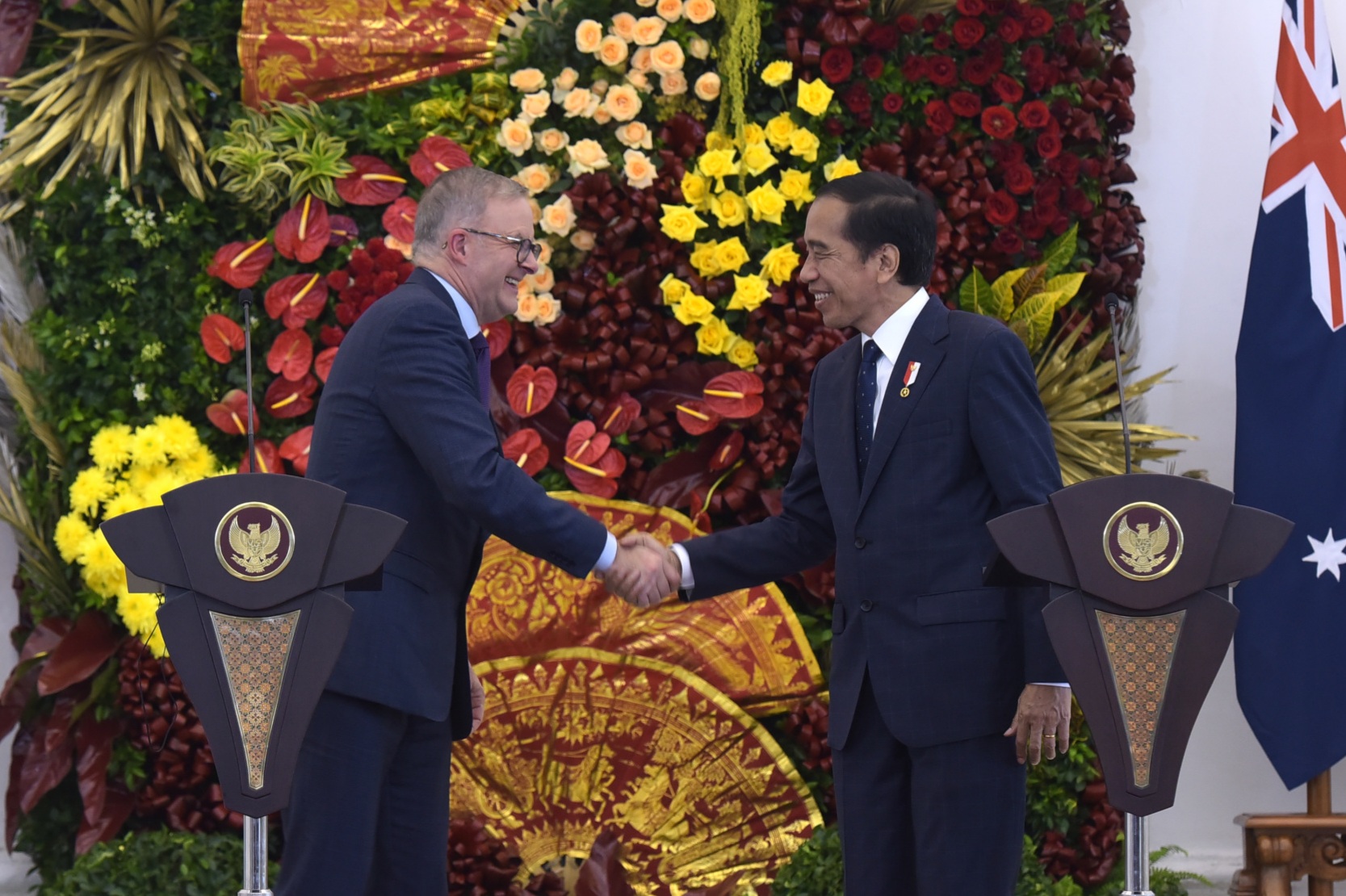Indonesia as a Global Maritime Fulcrum: Examining the Model of Indonesia-Australia Maritime Cooperation and Its Impacts to Achieve Indonesia’s Global Maritime Fulcrum Security Agenda

Downloads
This article is motivated by a cooperation agreement between Indonesia and Australia, namely the Lombok Agreement or Lombok Treaty, regarding law enforcement, intelligence, resistance, terrorism, and maritime security. This collaboration was also continued with the MoU Joint Declaration on a Comprehensive Strategic Partnership between Australia and Indonesia during the reign of President Joko Widodo in realizing a shared vision of a safe and stable maritime environment. This article aims to look at and analyze more deeply such cooperation between Indonesia and Australia and how it influences Indonesia under President Joko Widodo's administration to realize its Global Maritime Fulcrum (GMF) mission, thus contributing to managing maritime security. The research method applied in writing this article uses a descriptive research type using literature review techniques to collect data from various journals, articles, books, websites, and studies that correlate with this article. This article uses the concept of maritime cooperation to see the bilateral cooperation between Indonesia and Australia, which is based on problems and aims to achieve the interests of each country. Overall, this article shows that the maritime cooperation carried out by Indonesia and Australia can impact efforts to realize Indonesia as a Global Maritime Fulcrum proclaimed by President Joko Widodo in the security realm. This cooperation is implemented in the form of cooperation that has a positive impact on the development of personnel quality, both on Indonesian Navy (TNI AL) and Royal Australian Navy (RAN) personnel professionalism, as well as information gains in implementing maritime security operations with Indonesia.
Copyright (c) 2022 Hasanuddin Journal of Strategic and International Studies (HJSIS)

This work is licensed under a Creative Commons Attribution 4.0 International License.















